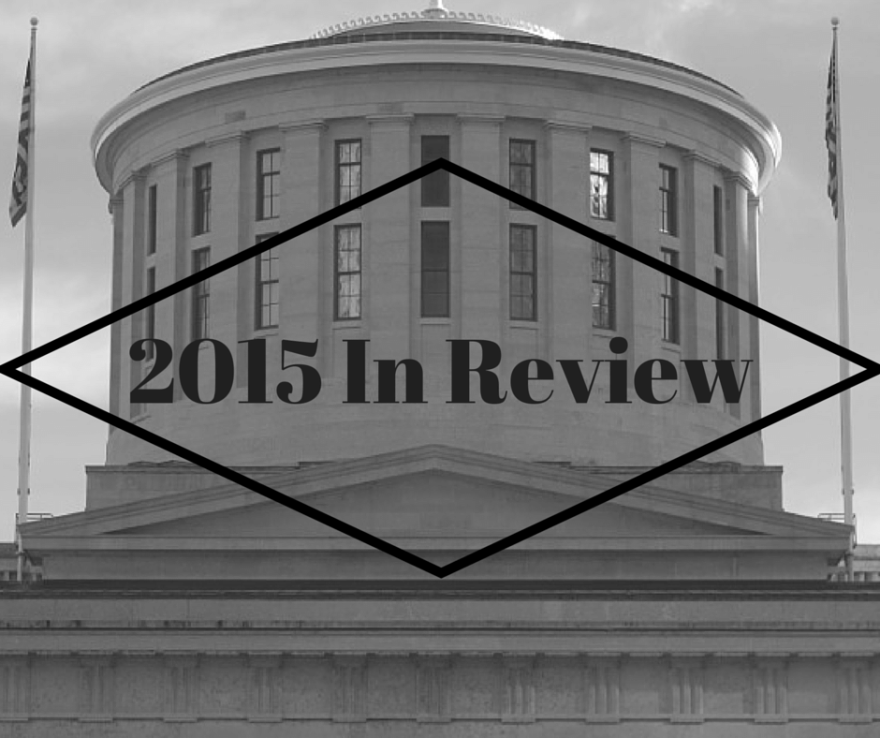It was a big year for cases involving public records, home rule, sex offenders and charter schools at the state’s highest court. Here's a rundown of the top news at the Ohio Supreme Court in our continuing series “2015 in Review.”
The court sided with journalists on police records at private colleges and on the key card data Democratic former Cuyahoga County executive Ed FitzGerald withheld during the 2014 campaign for governor. And they ruled for the Cincinnati Enquirer, saying Butler County shouldn’t have withheld a recording of a call a 911 dispatcher made to a woman who’d called after her husband was stabbed by her son, and then hung up. Justice Paul Pfeifer quizzed the Enquirer’s John Greiner in arguments in 2014.
“We’re to trust to your editors rather than to the judge to make the decision as to what might or might not be prejudicial to the defendant?” asked Pfeifer.

Greiner responded, “I always liked Thomas Jefferson’s quote that if he had to choose between a government with no newspapers or newspapers with no government he would take the latter rather than the former.”
One of the biggest decisions of the year came down in September in favor of Akron-based White Hat Management, the for-profit manager of 10 Cleveland area charter schools, seven of which had serious academic problems. Five justices agreed that when the contracts ended, the charters had to buy from White Hat school equipment that was purchased with state money, siding with White Hat’s lawyer David Paragus.
“This case is simply a straightforward contract interpretation case,” said Paragus
But Justice Pfeifer called the White Hat contracts “unconscionable,” and Justice Bill O’Neill wrote that the judgment “rewards failure and encourages its repetition in the future in the name of profit.” The resulting outrage led lawmakers to put language into a charter school reform law signed in November that would require limits on contracts charters can sign with management companies.
There were rulings related to local governments’ home rule powers. In February, the justices delivered a blow to cities with local laws banning fracking, saying they couldn’t be enforced if a company had permission of the owner and a state permit. And in April, the court rejected the so-called “jock tax” that Cleveland levied against visiting professional athletes. Ryan McManus, who represented retired Chicago Bears linebacker Hunter Hillenmeyer, told the court in January there’s a problem with basing income taxes on the number of games visiting players play instead of the number of days they work.
“The problem is that one of these methods results in unfair apportionment under the constitution, and results in the city of Cleveland reaching beyond its borders and taxing income earned elsewhere. That’s impermissible, not only under Ohio law, but that’s unconstitutional,” McManus said.
Cleveland says the decision may mean it will have to pay as much as $2.4 million in tax refunds to out-of-town National Football League players.
And the court also ruled on other controversial issues. In November, the court upheld the requirement that convicted sex offenders register and check in periodically with authorities, saying it’s not cruel and unusual punishment, in a case involving a 21 year old who’d had sex with a 15 year old. Clark County Assistant Prosecutor Ryan Saunders argued the case against Travis Blankenship’s claim in March.
“Mr. Blankenship committed a crime. He was 21. He had sex with a 15 year old. And as part of that, he’s a sex offender,” said Saunders.
The court also ruled against some of the language the state ballot board had written on the marijuana legalization effort that eventually failed. And after the US Supreme Court upheld same-sex marriage, the court’s professional conduct board said judges couldn’t refuse to marry same-sex couples or completely stop performing marriages to avoid the issue.



